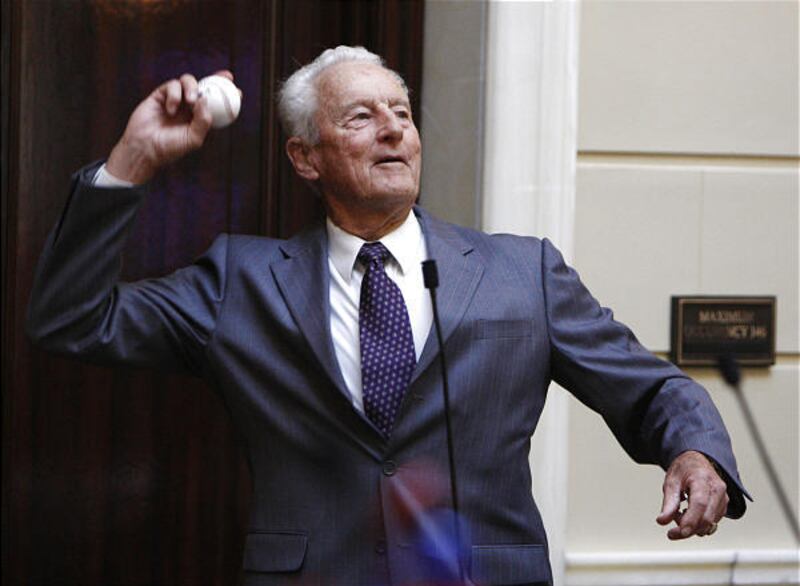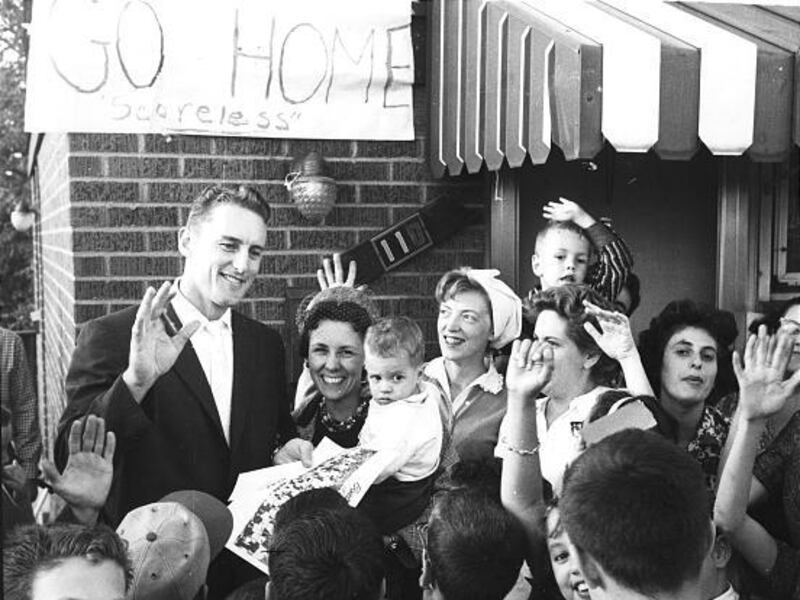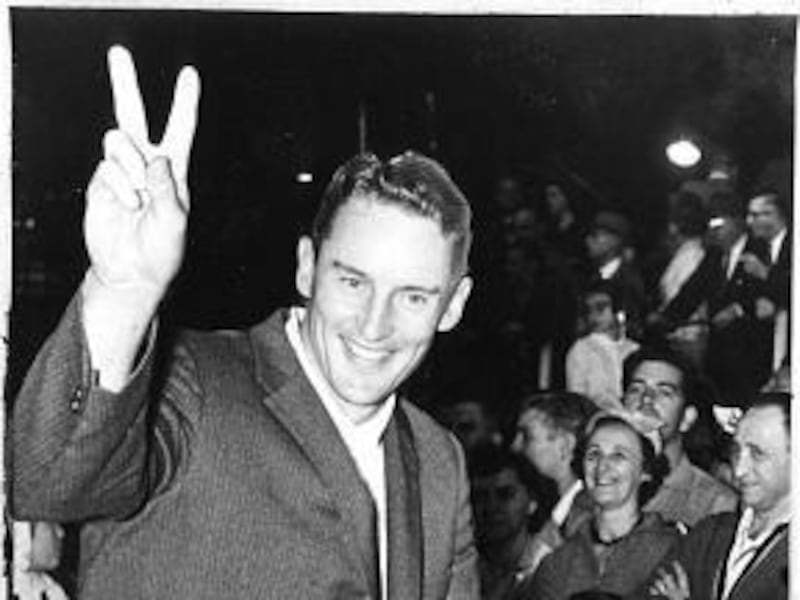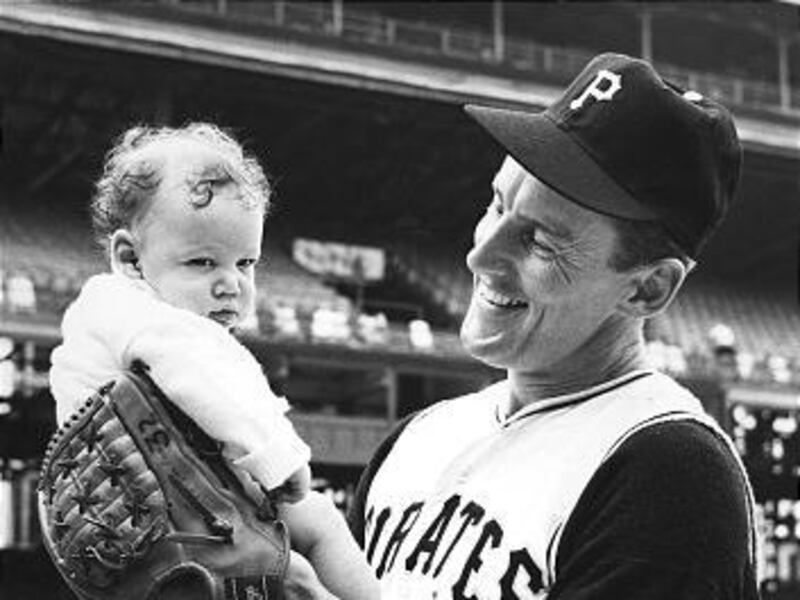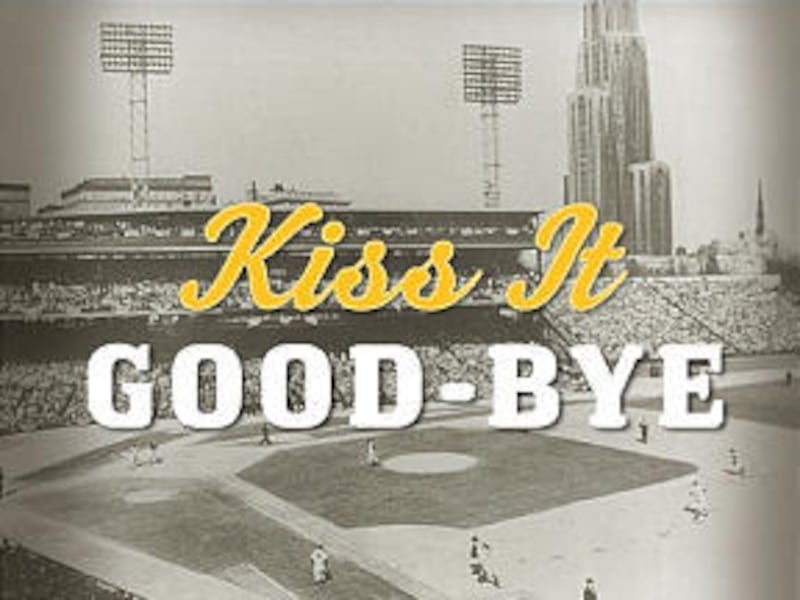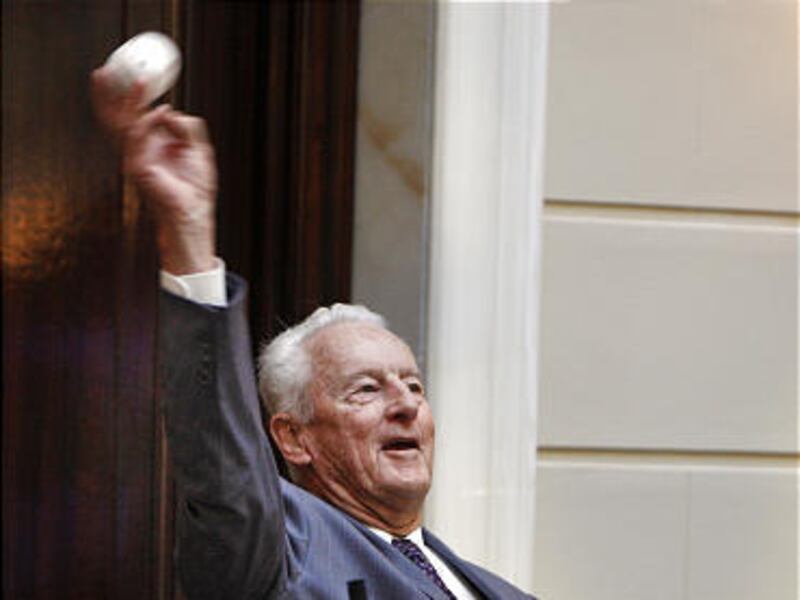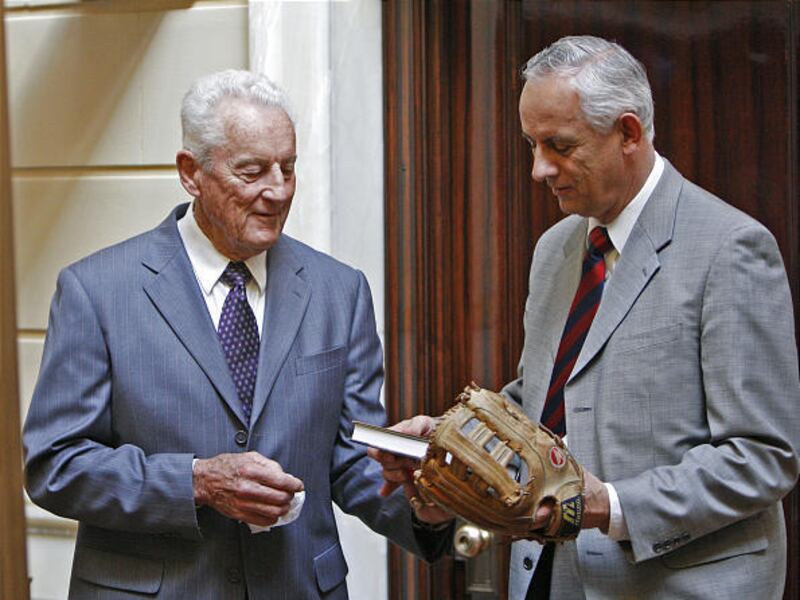John Moody didn't know much about Mormons, but he did know Vernon Law.
And the Pirates' ace was his hero.
Law was a baseball superstar who was also a devout Latter-day Saint. In 1960, he led a previously woeful Pittsburgh franchise to a World Series title. Moody, a 6-year-old boy at the time, watched as the Pirates elevated the "smoky city," which for too long had slumped under an inferiority complex. And for his part, Law did it on an ankle that "was killing him."
The man nicknamed "The Deacon" helped "inspire a team and a city and a people to a greatness that they really weren't quite sure they could ever achieve," Moody said. "That's why he was my hero."
Moody's career has taken him around the world as an international journalist, but he eventually longed for home. In 2003, he felt compelled to write a book about the team that defined his childhood.
Fifty years after that World Series, "Kiss It Good-bye" celebrates the 1960 Pirates, their Mormon ace and how they influenced a young Catholic boy in Pittsburgh. Because of Law's importance to the team and dedication to his religion, Latter-day Saint culture and beliefs fill the pages.
"You can't understand the Pittsburgh Pirates without understanding Vern Law, and Vern's faith is really the central element of his life," Moody said.
Moody is now chief executive officer for NewsCore, a business unit of News Corp. Yet he worked with a smaller Salt Lake City publisher on this project.
"Kiss It Good-bye" was released March 3 by Shadow Mountain, a publishing arm of Deseret Book. Moody didn't start by seeking out an LDS publisher, but he knew readers would need to understand The Church of Jesus Christ of Latter-day Saints in order to understand Law.
Stories about the confluence of faith and baseball in Law's life are plentiful in "Kiss It Good-bye" — in particular the bizarre injury that is now part of World Series lore.
Law was hurt when teammates, celebrating their pennant win with beer and champagne on Sept. 25, 1960, tried to rip his shirt off on the team bus. Law resisted, in part because he was protective of his temple garment.
In 1955, Law and wife VaNita found themselves having to decide between paying the rent or tithing. "I think we had more faith than sense," Law says. The couple paid their tithing, and later received a bonus check from the Pirates.
During the 1960 season, the Pirates visited Salt Lake City and Law had lunch at the Beehive House with general authorities. Later that year, he provided future church President Ezra Taft Benson with tickets to Game 7 of the World Series. President Benson returned the favor by providing Law and his family with a ride away from the raucous stadium.
Famous entertainer Bing Crosby and the Word of Wisdom played a role in his signing with Pittsburgh. Upon first arriving in the city, the media questioned Law about being a Mormon. He spoke in public whenever he could and was popular with religious Pittsburghers, particularly nuns, Moody writes.
"I wanted to be successful enough that I'd have opportunities to talk about the church," Law said. "I wanted people to listen whenever I talked about it."
Law won the Cy Young Award in 1960 as the best pitcher in baseball, the same year he won Games 1 and 4 of the World Series against a formidable Yankee lineup that included Mickey Mantle and Roger Maris. He started the final game of the Series and left in the sixth inning with a 4-1 lead.
Law pitched 16 seasons and won 162 decisions. At times, he was a well-conditioned ironman, Moody writes. During a game in 1955, Law pitched 18 innings — an unfathomable workload in modern baseball.
But Law wasn't just a great pitcher, Moody says. He was a good man. Because Law was active in the community, Moody came to associate Mormons with good causes.
"I always just assumed that Mormons were good people because of the example that was set for me by Vern Law when I was 6 years old," Moody said.
"Kiss It Good-bye" sketches a portrait of a rugged boy who grew up on a farm in Meridian, Idaho. While competitive, Law was also humble, selfless, dignified and naturally sincere. He could intimidate without being unsportsmanlike, Moody writes.
Moody called Law "the archetypal American success story" — an unsophisticated country boy who recognized his god-given talents and found a way to employ them while remaining true to his values.
As the only Mormon in the majors, Law knew he was under scrutiny.
"I knew I needed to keep my nose clean and set the right example," he said.
Moody's book details how Law dealt with challenges to his standards. When he received a phone call during the World Series asking him to pitch Marlboro cigarettes, he told the caller he couldn't endorse a product he didn't believe in — then handed the phone to a teammate whom he knew would give the same answer.
When a woman phoned his hotel room once, Law told her he wasn't interested in coming down for a drink. When she asked what he did for fun, Law said, "Beat the Braves." (Law had just thrown a complete game against Milwaukee.)
Law says the church's teachings and moral standards actually gave him an advantage in baseball. Drinking, smoking and "chasing around" were not conducive to athletic success, he says.
"That really has an effect on a person's life," he said. "I always felt I had two strikes on a hitter before they ever got up there."
Moody points out that Law was never judgmental of his teammates, a group that included some pretty rough characters. Law speaks highly of the 1960 team, despite the imprudent struggle on the bus that tore up his ankle and affected his career long-term.
"We just had a bunch of guys who liked each other and we worked well together and sacrificed to win ball games," Law said. "It was a real team effort."
The injury forced Law to pitch the World Series in pain. He switched from an overhand to a more sidearm delivery and tore his rotator cuff in the transition. Moody's book reveals the identity of the group's "ringleader" but also explains that Law was quick to forgive.
"I don't blame anybody for that," Law said. "I don't hold any grudges toward anyone because of it, even though it did affect my career and maybe an outside chance of getting into the hall of fame."
Law, who now lives in Provo, calls the book a "nice gesture" from his "best fan," John Moody.
The author didn't have to look far for Law. He found the former Cy Young winner in the phone book.
"I think there was just an affinity between us from the beginning, because I didn't feel like I was an author or a reporter," Moody said. "I felt like I was a 6-year-old kid again. … That's the effect that he had on me."
Moody says the 1960 World Series was the most exciting thing that had happened to him in his young life. The win transformed a city that, because of its polluted air and awkward layout, felt a little picked on, he says.
"The Pirates' win in 1960 turned all of that around," Moody said. "… It really was a turning point for the city and for everybody that came from there."
Quotable
Select quotes by Vernon Law from the book "Kiss It Good-bye":
On alcohol in locker room celebrations: "It burned my eyes so bad I wondered what it must do to your insides when you swallowed it."
On sprouting potatoes in a dirt-floor basement: "Unless you've had this job, you have no idea what it's like to grab a cold, squashy rotten potato. Spend an hour or two with that job and you'll want nothing but instant potatoes."
On modern baseball: "Today you hit .230, and you get a million and a half and think you're underpaid."
On religion and baseball: "I always felt that if I took care of those important obligations to the church, the Lord would bless me in my career."

